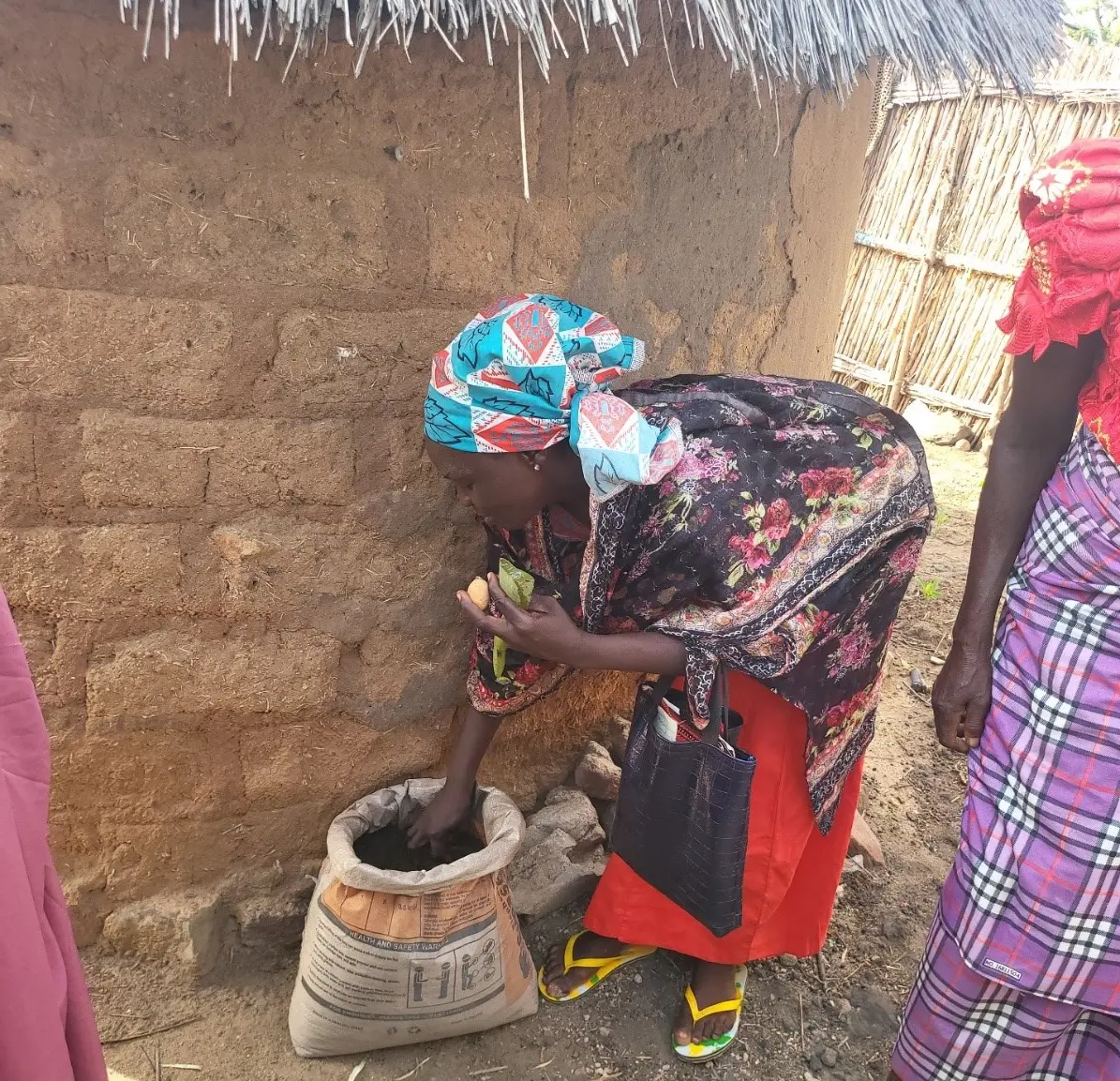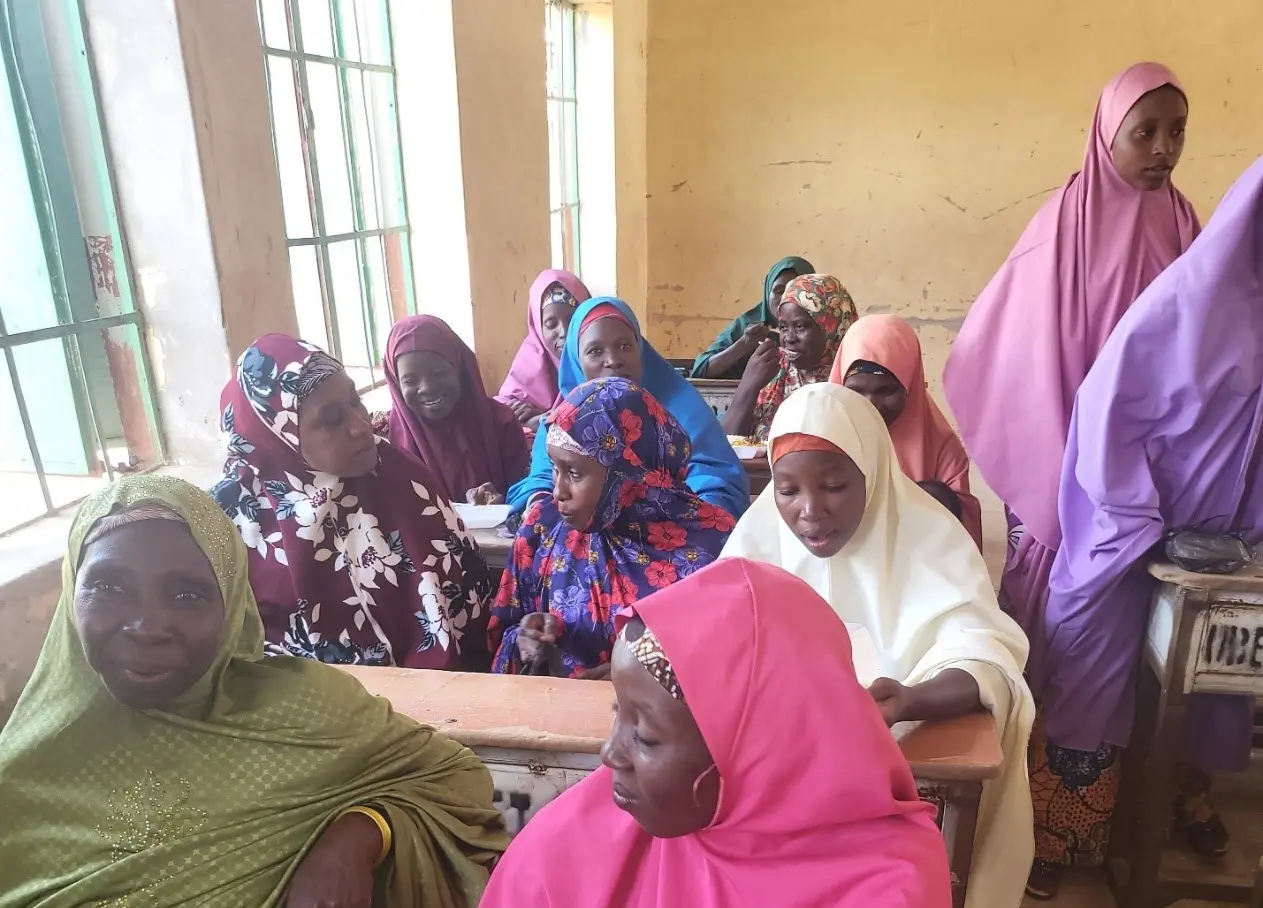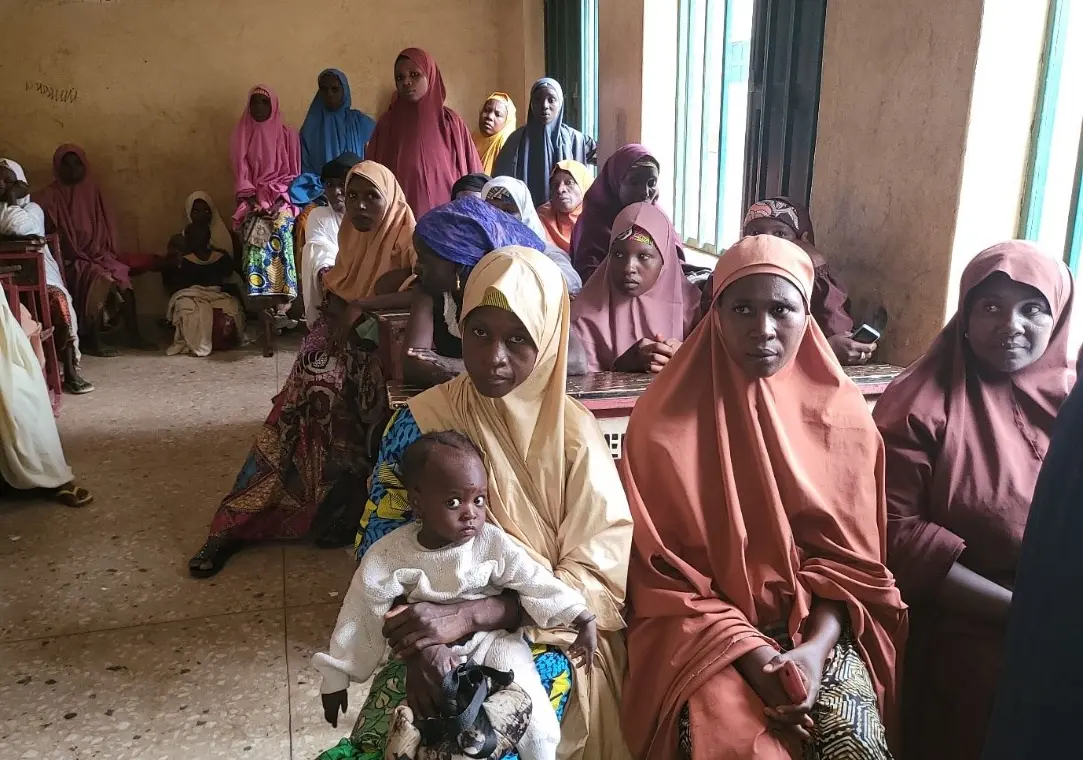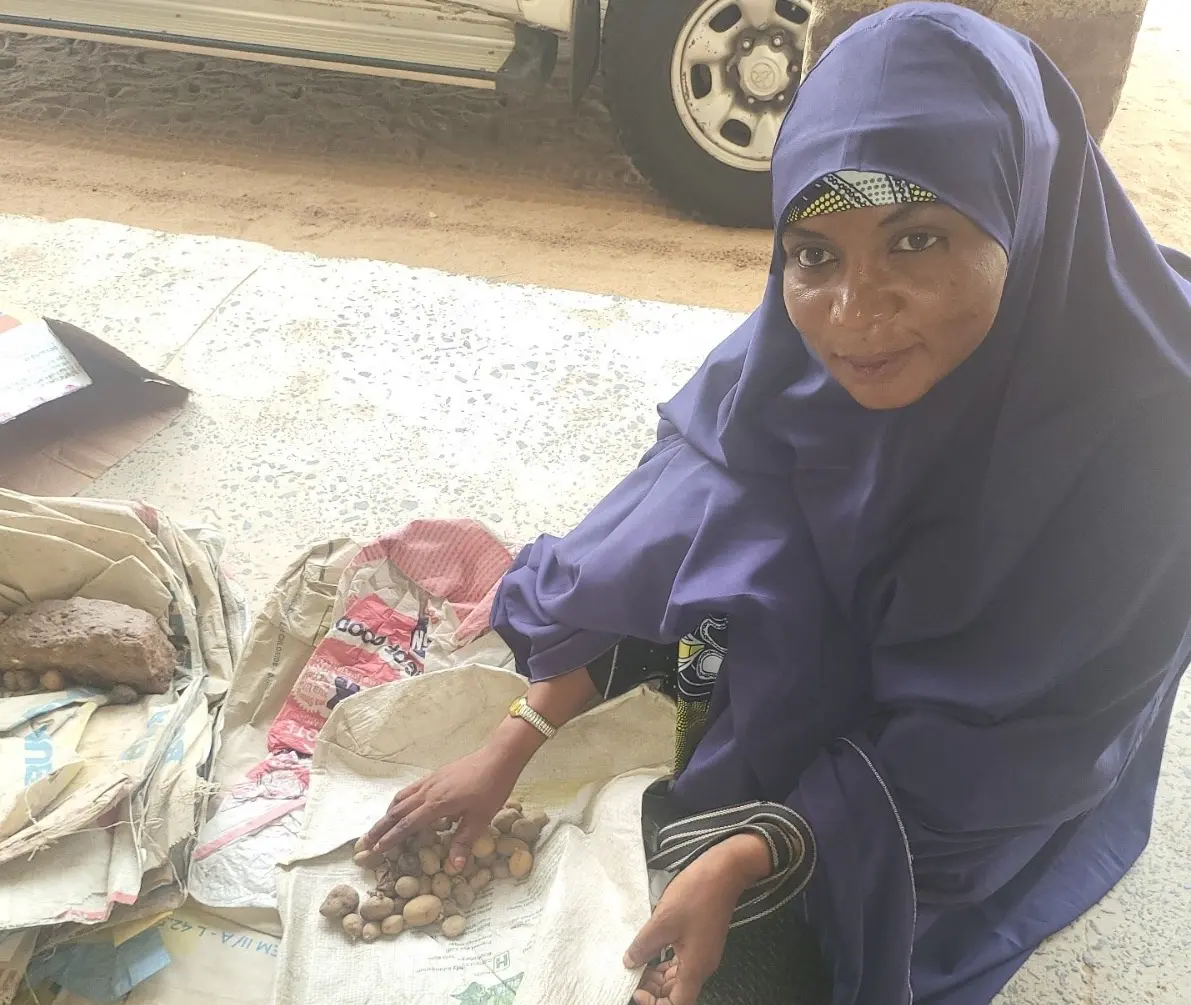Empowering Girls, Transforming Communities: The ADDA Girl Education Foundation's Bold Step Forward
The ADDA Girl Education Foundation (ADDA) is steadfast in its mission to empower girls, break the cycle of poverty, and secure a brighter future for families across Nigeria. The Foundation’s latest initiative, the Noman Tsakar Gida project, aims to do just that—by challenging the status quo and creating opportunities for women and girls in rural communities.
The Adda Girl Education Foundation, dedicated to guiding girls from “cradle to leadership,” has received a Strategic Opportunities Fund grant from Action Aid Nigeria to implement the Women Voices Nigeria-Leadership (WVL-Nigeria) project in Gombe State. This initiative is part of ActionAid Nigeria’s broader mission to address gender inequality and support women's rights by providing technical and financial resources to local women’s organizations and their networks.
The Noman Tsakar Gida project, a component of the WVL-Nigeria initiative, focused on empowering rural women by creating additional income sources, promoting their rights, and alleviating poverty. The project aimed to enhance the livelihoods, nutrition, and gender equality for 150 Adda Mothers—mothers of Adda Girls who are beneficiaries of the Adda Foundation’s scholarship scheme—through training in backyard potato farming.


The Vision Behind Noman Tsakar Gida: Uplifting Women and Girls
The objectives of the Noman Tsakar Gida project are as inspiring as they are multifaceted.
-
Boost
women’s self-esteem:
First, it seeks to uplift women’s self-esteem, encouraging them to take pride in their vital contributions to their families and communities. -
Reduce
farm labor burdens for girls (Barema):
It also aims to lighten the heavy burden of farm labor on young girls, known locally as Barema, who are often tasked with significant agricultural duties at the cost of their education. -
Advocate
for women’s rights through capacity building and community engagement:
Moreover, the project seeks to empower women by building their capacity and encouraging their communities to engage in meaningful dialogue about women’s rights. -
Combat
poverty through sustainable agricultural practices:
Importantly, it tackles poverty by promoting sustainable agricultural practices that can provide ongoing economic benefits for the participants.
A Comprehensive Approach to Lasting Change
The Noman Tsakar Gida project employed a holistic approach to empower women in the community.
- Community Mobilization:
It began with community mobilization—ensuring that women were not only aware of the opportunities available to them but fully engaged from the outset. - Hands-on Demonstrations:
This was followed by hands-on demonstrations in backyard potato farming, a practical and accessible means of income generation. - Participatory Learning:
Participatory learning sessions allowed the women to take part in the demonstrations, ask questions, and share their experiences, fostering a collaborative and supportive learning environment. - Capacity Building:
To further build their skills, capacity-building workshops were organized, covering essential topics such as soil preparation, potato cultivation, and using organic fertilizer. - Resource Distribution:
Women were also taught crucial skills like business management and financial planning, empowering them to transform their potato farms into sustainable ventures. - Feedback and Evaluation:
Each participant received practical resources, including 30 cement sacks and potato sprouts, along with step-by-step guidance on managing the potato lifecycle, pest control, and achieving optimal growing conditions.

Community Support and a Ripple Effect of Change
The initiative began with a courtesy visit to the Emir of Nafada, who expressed enthusiasm for the project and offered his prayers for its success. Out of the 150 invited participants, 141 attended the training session. This program, part of the WVL-Nigeria Project managed by Action Aid Nigeria and funded by Global Affairs Canada, was designed to teach backyard potato farming. The training covered soil preparation, planting, and cultivating potatoes in sacks. Additionally, participants received guidance on business management, financial planning, and women's rights.
The training also included practical demonstrations on using livestock manure as organic fertilizer. Each participant received 30 cement sacks and potato sprouts. They learned about potato lifecycle management, pest control, and optimal growing conditions. Detailed instructions on planting sprouted potatoes and proper care techniques were provided. Participants were encouraged to share 10 empty sacks and sprouts with a community member to further spread the benefits of potato farming.
Addressing Gender-Based Violence and Promoting Inclusion
The session also addressed reporting safeguarding concerns and gender-based violence, displaying Action Aid’s Whistleblowing number throughout the program.
The training was conducted in multiple languages—Hausa, Fulfulde, Waja, and Dadiya—to ensure comprehensive understanding. Videos were recorded to capture feedback, as many participants were not literate enough to provide written input. A lunch break was included, and the mothers expressed great enthusiasm and optimism about adopting this new farming method. The session concluded with the distribution of potato sprouts and sacks, the selection of cluster representatives for progress reporting, and the provision of the facilitator’s contact information for ongoing support.

Challenges Faced and Next Steps Planned
Challenges Faced
- Not all Adda Mothers were able to attend the training.
- Limited literacy among participants required the assistance of volunteers to help with attendance documentation.
- Many participants did not have personal bank accounts and had to use relatives’ account numbers and sign consent forms.
Next Steps
- Establish a village savings and loan scheme to assist women with financial management.
- Develop a structured approach for marketing their produce to ensure access to markets post-harvest.
- Facilitate the opening of personal bank accounts with the assistance of microfinance banks.
Building a Brighter Future, One Girl at a Time
The Noman Tsakar Gida project is more than an agricultural training initiative—it is a beacon of hope for girls and women striving for a better future. By addressing gender inequality and providing women with the skills, knowledge, and resources they need to succeed, ADDA is transforming not only individual lives but entire communities. With the support of partners, local leaders, and committed community members, the ADDA Girl Education Foundation is paving the way for a brighter, more inclusive future—one where girls can access the education they deserve, and women are empowered to contribute meaningfully to their communities.
Together, we can break the cycle of poverty and build a future where every girl has the opportunity to thrive.
Help us provide alternative source of livelihoods for rural women.
Join us to help break the cycle of poverty!